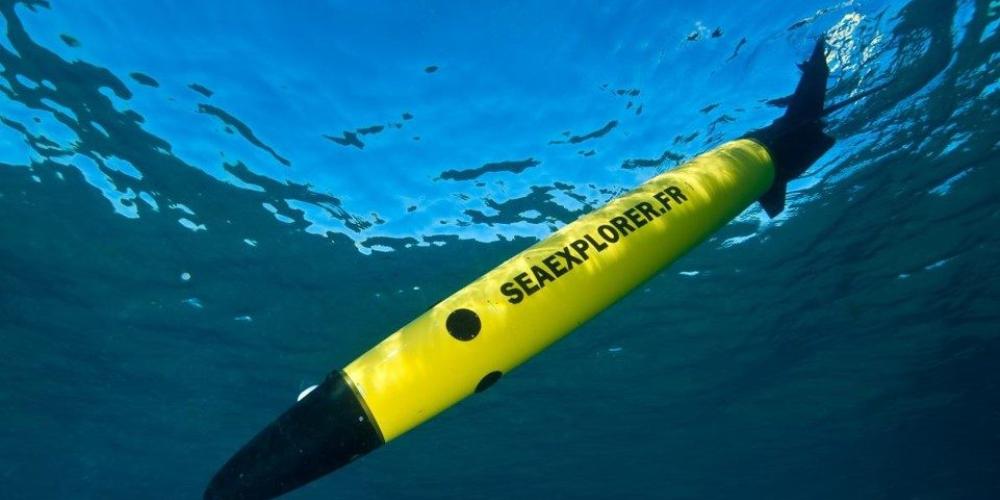
VUB ocean robot for climate research moves to Flanders Marine Institute
On Wednesday 10 November, the VUB ocean robot SeaExplorer was officially handed over to the Flanders Marine Institute (VLIZ). The SeaExplorer is an excellent device for studying climate change in the ocean, including research on micronutrients in the water. The transfer took place in the presence of the governor of West Flanders Carl Decaluwé, VLIZ director Jan Mees and Professor Willy Baeyens and Professor Yue Gao of VUB.
Professor Baeyens: “The VUB-VLIZ cooperation is a win-win situation for the robot’s scientific applications. It will be an important element of the modern, advanced marine robotics centre of the VLIZ. This will allow VUB to significantly expand the scientific scope of application, both in the number of measurable parameters and in the frequency of use of the glider.”
Previous VUB research on CO2 absorption by plankton
There are broadly two ways to reduce the amount of CO2 in the atmosphere. Either you limit its production, or you absorb as much of it as possible. Plankton in the ocean is very effective at the latter, fulfilling a role similar to that of rainforests on land. It absorbs CO2 and transports it partly to the deep sea floor, where it does not contribute to global warming for a long time. Research has shown that plankton is not equally abundant everywhere. The question that Prof Baeyens and his colleagues from the VUB research group AMGC asked was how the plankton biomass in the ocean is linked to the availability of well-defined micronutrients.
Because this research from a fully fledged oceanographic research vessel is very expensive, the solution was to invest in the SeaExplorer, an ocean robot equipped with sensors. The satellite-controlled robot, developed by the French company ALSEAMAR, can operate independently for several months. VUB developed a number of unique sensors that are attached to the SeaExplorer and can measure all the micronutrients that plankton needs. Two campaigns in the Mediterranean Sea produced promising results, published in the journals Scientific Reports and Trends in Analytical Chemistry-TrAC.
Baeyens: “Our results show, contrary to what previous measurements suggested, that some trace metals can indeed limit plankton growth in the Mediterranean Sea and the ocean.”
Towards a new future
With the transfer to the VLIZ, the glider will be part of a specialised team for marine robotics. Wieter Boone from VLIZ: “The VLIZ Marine Robotics Centre focuses on modular robots with a small logistic footprint. The SeaExplorer is just such a robot that fulfils a unique role in the observation capacity of the ocean. The glider makes it possible to study seasonal processes at an unprecedented level of detail.”
Recently, VLIZ invested in an upgrade of the device with the addition of extra sensors. Now, the institute is looking further into how it can use the robot within scientific projects and how new sensors can be integrated to measure plankton and currents in places where it was not possible before. Finally, in 2022 the Marine Robotics Centre will get new premises, thanks to the Flemish government, to enable further optimisation of the robot’s usability and performance. This will allow increased ambitions for Flemish ocean-climate research and international impact.